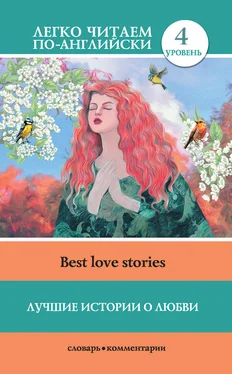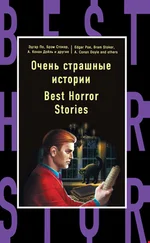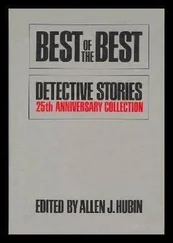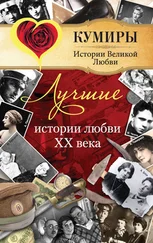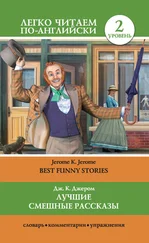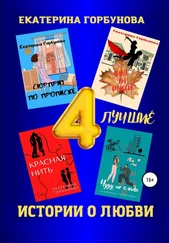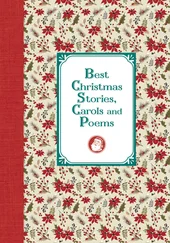Just before Christmas, Bill Knowles arrived unexpectedly one day and left the next – either he gave Ailie an ultimatum or she had made up her mind at last. I saw her sometimes when she wasn’t busy with returned heroes from Savannah and Augusta, but I felt like an outmoded survival – and I was. She was waiting for Earl Schoen with such a vast uncertainty that she didn’t like to talk about it. Three days before I got my final discharge he came.
I first happened upon them walking down Market Street together, and I don’t think I’ve ever been so sorry for a couple in my life; though I suppose the same situation was repeating itself in every city where there had been camps. Exteriorly Earl had about everything wrong with him that could be imagined. His hat was green, with a feather; his suit was braided in a grotesque fashion that national advertising and the movies have put an end to. Evidently he had been to his old barber, for his hair bloused neatly on his pink, shaved neck. In these clothes even the natural grace of that magnificent body had departed. At first he boasted of his fine job; it would get them along all right until he could “see some easy money.” But from the moment he came back into Ailie’s world on its own terms he must have known it was hopeless. I don’t know what Ailie said or how much her grief weighed against her stupefaction. She acted quickly – three days after his arrival, Earl and I went North together on the train.
“Well, that’s the end of that,” he said moodily. “She’s a wonderful girl, but too much of a highbrow for me. I guess she’s got to marry some rich guy that’ll give her a great social position. I can’t see that stuck-up sort of thing.” And then, later: “She said to come back and see her in a year, but I’ll never go back. This aristocrat stuff is all right if you got the money for it, but – ”
“But it wasn’t real,” he meant to finish. The provincial society in which he had moved with so much satisfaction for six months already appeared to him as affected and artificial.
“Say, did you see what I saw getting on the train?” he asked me after a while. “Two wonderful girls, all alone. What do you say if we ask them to lunch? I’ll take the one in blue.” Halfway down the car he turned around suddenly. “Say, Andy,” he demanded, frowning; “one thing – how do you suppose she knew I used to command a street car? [44]I never told her that.”
“I’ve no idea.”
This narrative arrives now at one of the big gaps that stared me in the face when I began. For six years, while I finished at Harvard Law and built commercial aeroplanes, Ailie Calhoun was scarcely more than a name on a Christmas card; something that blew a little in my mind on warm nights when I remembered the magnolia flowers. Occasionally an acquaintance of Army days would ask me, “What became of that blond girl who was so popular?” but I didn’t know. I ran into Nancy Lamar at the Montmartre in New York one evening and learned that Ailie had become engaged to a man in Cincinnati, had gone North to visit his family and then broken it off. She was lovely as ever and there was always an admirer or two. But neither Bill Knowles nor Earl Schoen had ever come back.
And somewhere about that time I heard that Bill Knowles had married a girl he met on a boat.
Oddly enough, a girl seen at twilight in a small Indiana station started me thinking about going South. The girl, in a pink dress, threw her arms about a man who got off our train and hurried him to a waiting car, and I felt a sort of pang. It seemed to me that she was bearing him off into the lost midsummer world of my early twenties, where time had stood still and charming girls still walked slowly along the dusky streets. I suppose that poetry is a Northern man’s dream of the South. But it was months later that I sent off a wire to Ailie, and immediately followed it to Tarleton.
It was July. The Jefferson Hotel seemed strangely shabby and stuffy. I recognized the taxi driver who took me up to Ailie’s house, but his “Sure, I do, lieutenant,” was unconvincing. I was only one of twenty thousand.
It was a curious three days. Ailie’s was still so physically appealing that you wanted to touch the charm that trembled on her lips. No – the change was more profound than that.
At once I saw she had a different line. The modulations of pride, the vocal hints that she knew the secrets of a brighter, finer ante-bellum day, were gone from her voice; there was no time for them now. We went to a party at the house of some young married people, and she was the nervous, glowing center of it. After all, she wasn’t eighteen, and she was as attractive in her rôle of reckless clown as she had ever been in her life.
“Have you heard anything from Earl Schoen?” I asked her the second night, on our way to the country-club dance.
“No.” She was serious for a moment. “I often think of him. He was the – ” She hesitated.
“Go on.”
“I was going to say the man I loved most, but that wouldn’t be true. I never exactly loved him, or I’d have married him anyhow, wouldn’t I?” She looked at me questioningly. “At least I wouldn’t have treated him like that.”
“It was impossible.”
“Of course,” she agreed uncertainly. Her mood changed; she became flippant: “How the Yankees did deceive us poor little Southern girls. Ah, me!”
When we reached the country club she melted like a chameleon into the – to me – unfamiliar crowd. There was a new generation upon the floor, with less dignity than the ones I had known, but none of them were more a part of its lazy, feverish essence than Ailie. Possibly she had realized that in her initial longing to escape from Tarleton’s provincialism she had been walking alone. Just where she lost the battle, waged behind the white pillars of her veranda, I don’t know.
I left her house, as I had so often left it that vanished June, in a mood of vague dissatisfaction. It was hours later, tossing about my bed in the hotel, that I realized what was the matter, what had always been the matter – I was deeply and incurably in love with her. In spite of every incompatibility, she was still, she would always be to me, the most attractive girl I had ever known. I told her so next afternoon. It was one of those hot days I knew so well, and Ailie sat beside me on a couch in the darkened library.
“Oh, no, I couldn’t marry you,” she said, almost frightened; “I don’t love you that way at all. I never did. And you don’t love me. I didn’t mean to tell you now, but next month I’m going to marry another man. We’re not even announcing it, because I’ve done that twice before.” Suddenly it occurred to her that I might be hurt: “Andy, you just had a silly idea, didn’t you? You know I couldn’t ever marry a Northern man.”
“Who is he?” I demanded.
“A man from Savannah.”
“Are you in love with him?”
“Of course I am.” We both smiled. “Of course I am! What are you trying to make me say?”
There were no doubts, as there had been with other men. She couldn’t afford to let herself have doubts. I knew this because she had long ago stopped making any pretensions with me. This very naturalness, I realized, was because she didn’t consider me as an admirer. She couldn’t believe that anyone not taken in to the point of uncritical worship could really love her. That was what she called being “sincere”; she felt most security with men like Canby and Earl Schoen, who were incapable of passing judgments on the ostensibly aristocratic heart. [45]
“All right,” I said, as if she had asked my permission to marry. “Now, would you do something for me?”
“Anything.”
“Ride out to camp.”
Читать дальше
Конец ознакомительного отрывка
Купить книгу
